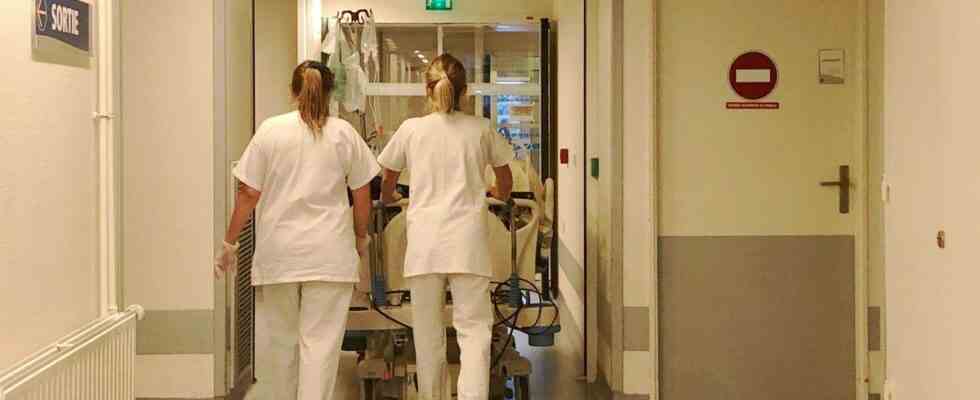“Today is pretty quiet. “In the corridors of the medical intensive care unit of the Rennes University Hospital, Doctor Adel Maamar takes advantage of the relative serenity of his unit. Here, the patients admitted are in very serious conditions requiring permanent assistance. Breathing assistance, cardiac monitoring, oxygen saturation or admission syringes are all monitored and “connected” to the patient. In the event of an alert, all the devices use the same process to alert medical personnel: they ring, they beep, they chime. But above all, they are annoying. “We did the math. In the department, each patient generates between 150 and 300 alarms per day. In an eight-bed unit like this, that’s over 2,000 alarms a day. We hear them all the time, even sometimes in the evening while falling asleep, ”continues Dr. Maamar.
Some of these alarms are called “yellow” for the less worrying. Others are categorized as “red” and sound much louder to signify urgency. The problem with these incessant alerts is that they are sometimes useless. “At each alarm, caregivers must interrupt their task, go and see what is happening. It disturbs them, it slows them down. So it has to be relevant, ”continues the hospital practitioner. In a service where all the doors remain permanently open, the nursing staff is not the only one to suffer. While they are already very weak, patients must also endure these permanent noises emanating from their room or that of their neighbour. “I worked at night for a long time and I found the volume to be very high. Our patients need calm, serenity. When it rings from everywhere, it increases the stress, we have the impression that the service is not under control, ”says Nathanaël, a nurse in medical resuscitation.
Lowered thresholds, without endangering
In recent months, however, the situation has improved in this department of the Rennes University Hospital. In partnership over five years with advisers from the brand Philips, which manufactures a good part of the scopes (surveillance monitors) of the CHU, the staff looked into the relevance of all these sounds. To reduce the number, caregivers have worked on reducing the thresholds for triggering alarms but also the best installation of sensors. A profitable choice: in a few weeks, the number of alerts has dropped by 15 to 20% in the service. “We had to carry out a huge amount of data analysis work to see which thresholds could be lowered, if there was seasonality, variations during the day. The most difficult thing was to convince that we were not going to endanger our patients, ”recalls doctor Adel Maamar. The work, however, is far from over. According to the surveys carried out, 70 to 80% of the alarms which sound in intensive care are considered to be “irrelevant”, that is to say that they do not require the intervention of a caregiver.
Reducing this “background noise” obviously had consequences for the working conditions of the staff. Less disturbed by alarms, the service has become calmer, everyone speaking less loudly than in the past. “When there is a red alarm ringing, there is nothing you can do about it. Now everyone is more careful, it has generated team dynamics, ”says one of the caregivers in the service. Difficult for the moment to know what the patients think of it. Very often comatose, the latter keep few memories of their stay in intensive care. But doctors are convinced: waking up in a peaceful environment clearly limits the post-traumatic.

